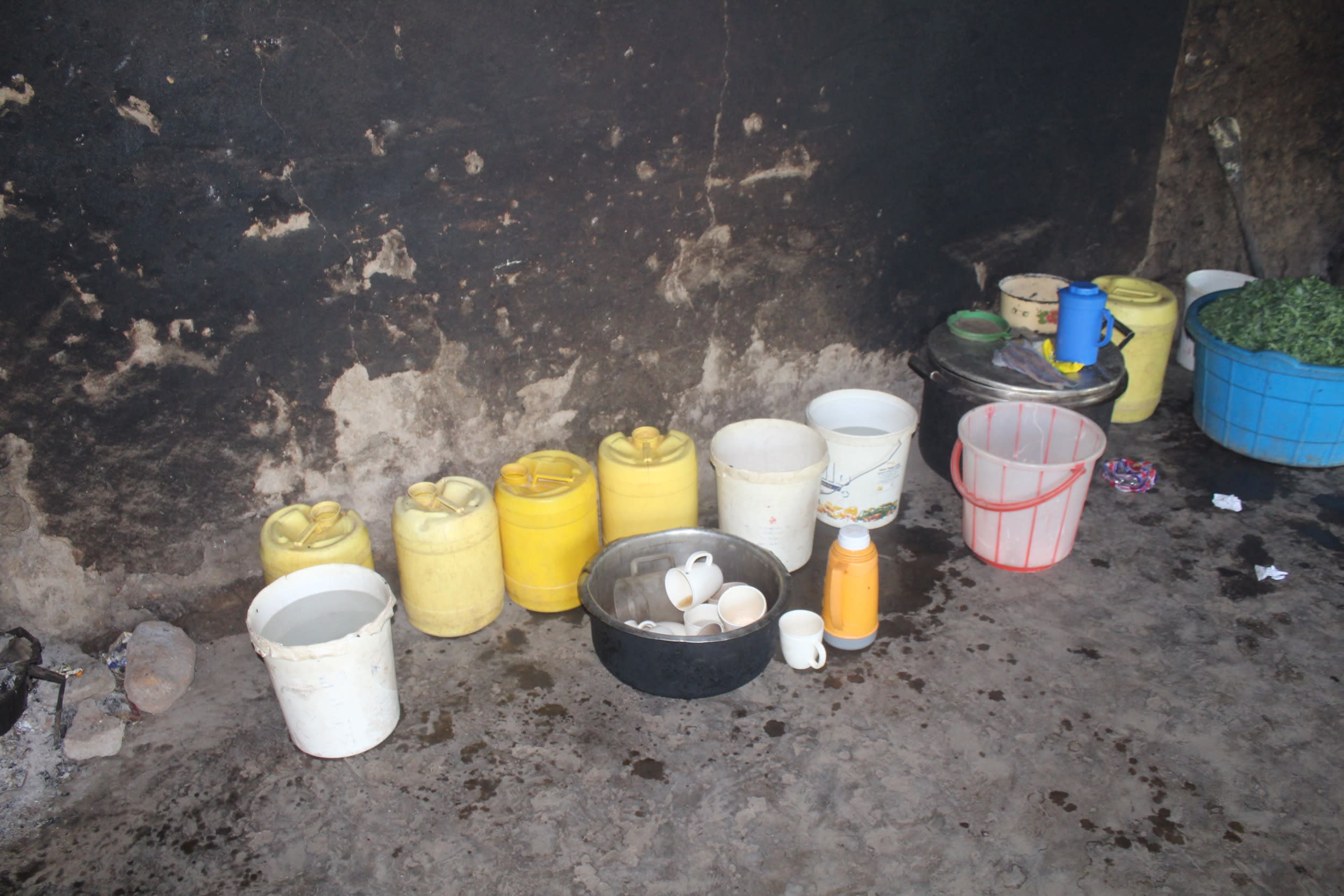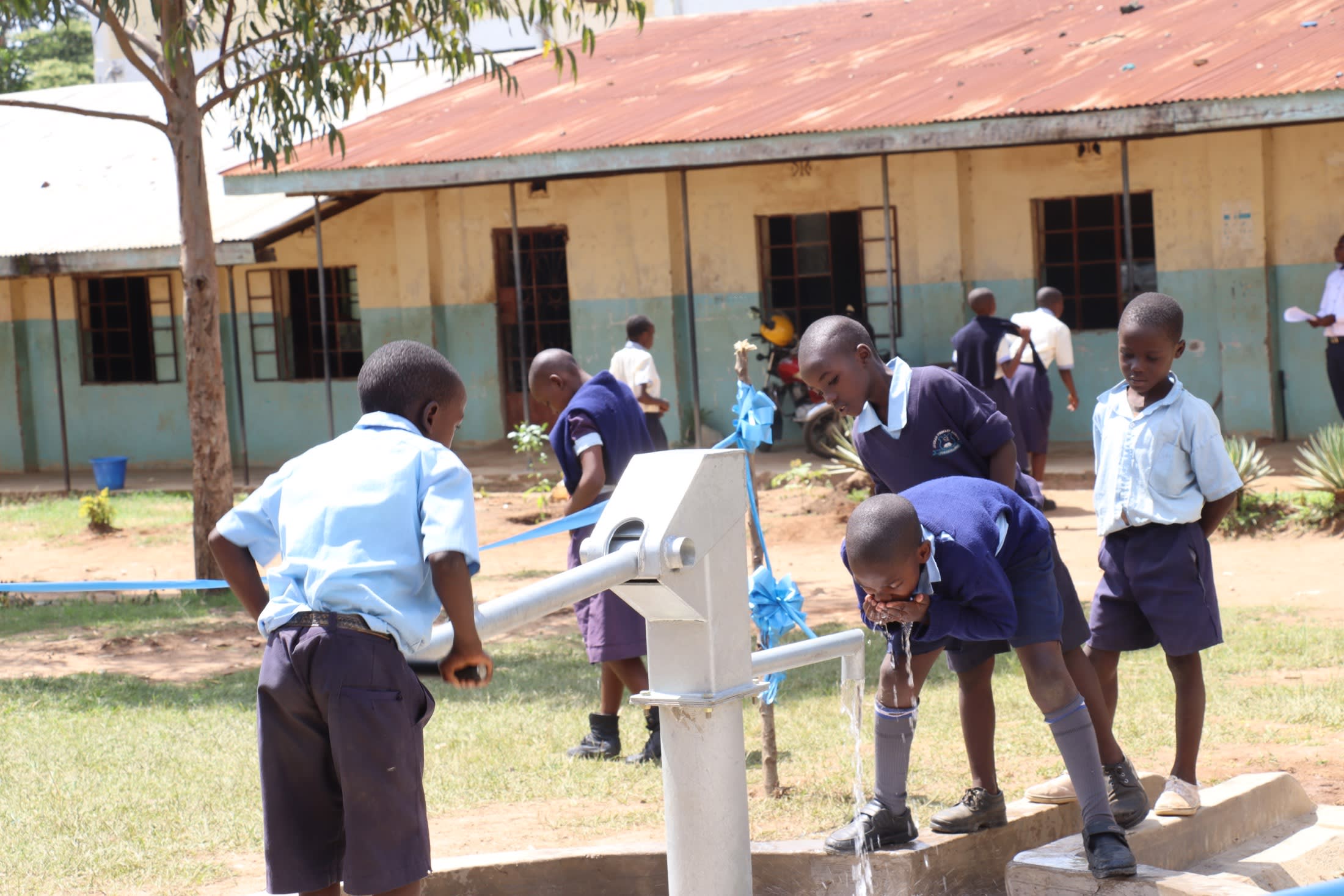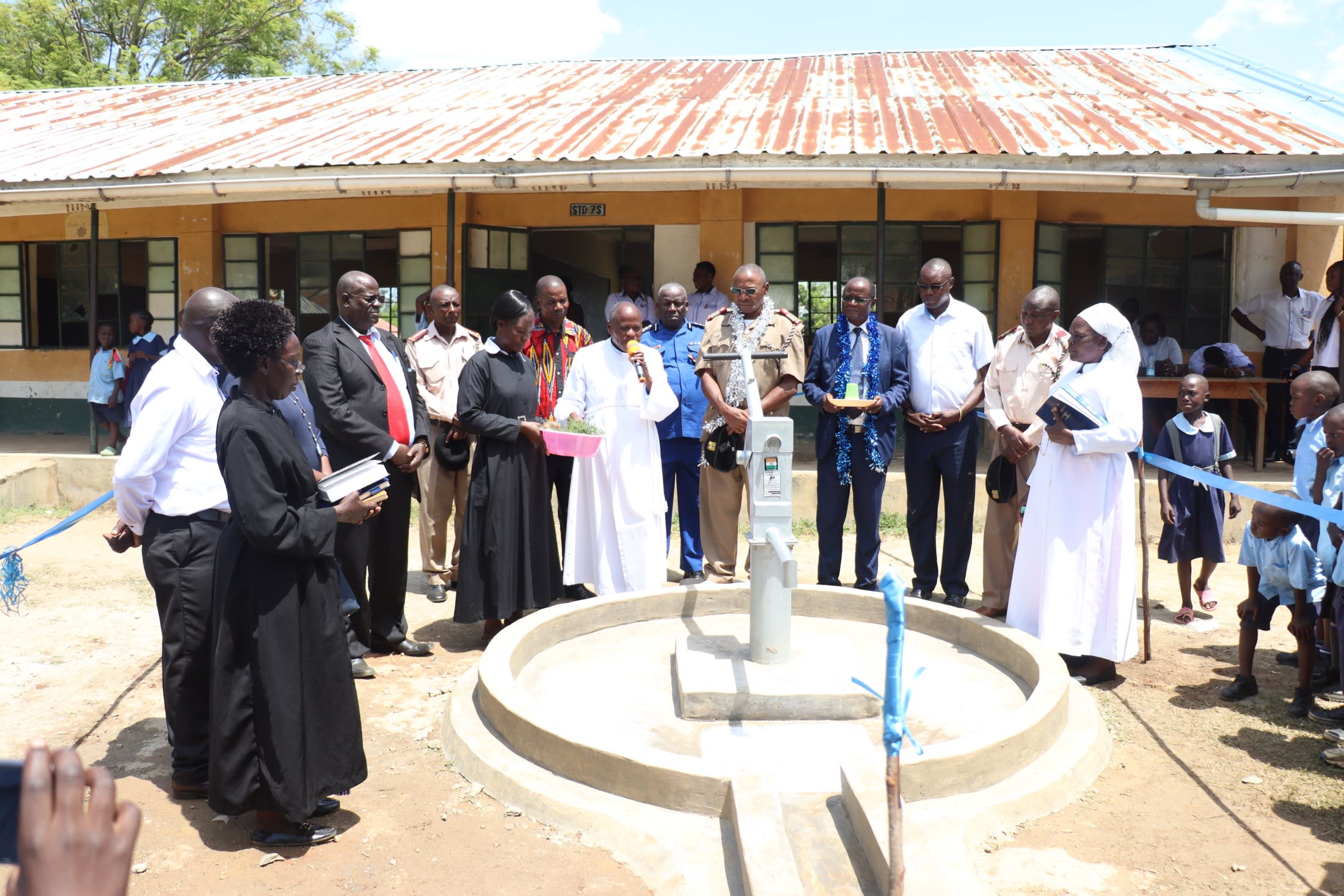No matter how many times students fetch water from the secondary school across the busy market road, they can never get enough to serve the school's 1,308 students and 42 staff. This water crisis is especially acute for those students who board at the school, like Samantha.
"When we wake up in the morning, and there is little water around, we are forced to go to class without taking a bath," Samantha said (she's in the below picture). She explained that this, along with dehydration, affects her concentration in class for the whole day.

The teachers at the school purchase water when they can afford it to avoid typhoid and chronic diarrhea the students suffer. There is not enough water available for proper personal hygiene or sanitation, and what little water they have is stored in jerrycans without being treated.

The school's kitchen goes through a lot of water having to feed so many students. Because there's never enough, students' meals are often delayed, which eats into students' class time...and their playtime.
"Sometimes we extend our lesson to recover wasted time," said Deputy Head Teacher William Ashitiba. "This leaves learners with no time to play, which makes it difficult to identify the students' talents."

Hopefully, by having their own well installed, the students at St. Pauls Lubinu Day and Boarding Primary School can regain their valuable time and begin focusing on learning once again.
What We Can Do:
New Well
We conducted a hydrogeological survey at this school, and the results indicated the water table beneath it is an ideal candidate for a borehole well. Due to a borehole well's unique ability to tap into a safe, year-round water column, it will be poised to serve all of the water needs for this school's large population, even through the dry season.
The school will help collect the needed construction materials such as sand, rocks, and water for mixing cement. They will also provide housing and meals for the work team, in addition to providing local laborers. We will complement their materials by providing an expert team of artisans and drilling professionals, tools, hardware, and hand-pump. Once finished, the school’s students and staff will use water from the well for drinking, handwashing, cooking, cleaning, and much more.
The school and we strongly believe that all of these components will work together to improve standards at this school, which will help lead to better student academic performance and unlock the opportunity for these students to live better, healthier lives.
Handwashing Stations
The student health club will oversee two new handwashing stations we will provide and ensure they are kept clean and in working condition. The club leaders will fill the handwashing stations with water daily and make sure they are always supplied with a cleaning agent such as soap or ash.
VIP Latrines
Two triple-door latrine blocks will be constructed with local materials that the school will help gather. Three doors will serve the girls, and three doors will serve the boys. These new latrines will have cement floors designed to be easy to use and clean. And with a new well right on school property, there should be enough water to keep them clean.
Training on Health, Hygiene, and More
We will hold a one-day intensive training session with students, teachers, and parents. This training will cover a wide range of topics, including disease transmission routes and prevention; personal and environmental hygiene; and the operation and maintenance of the borehole, latrines, and handwashing stations. There will be a special emphasis on handwashing.
Our team of facilitators will use various methods to train, including participatory hygiene and sanitation transformation and asset-based community development. We will initiate a student health club, which will prepare students to lead other pupils into healthy habits at school and home. We will also lead lectures, group discussions and provide illustrative handouts to teach health topics and promote good hygiene practices within the school, including handwashing and water treatment. We will then conduct a series of follow-up training before transitioning to our regularly scheduled support visits throughout the year.
We and the school strongly believe that all of these components will work together to improve standards at this school, which will help lead to better student academic performance and will help unlock the opportunity for these students to live better, healthier lives.





 Borehole Well and Hand Pump
Borehole Well and Hand Pump
 Rehabilitation Project
Rehabilitation Project
































